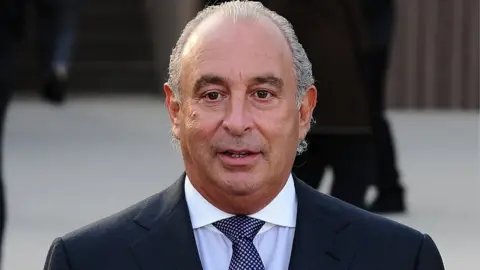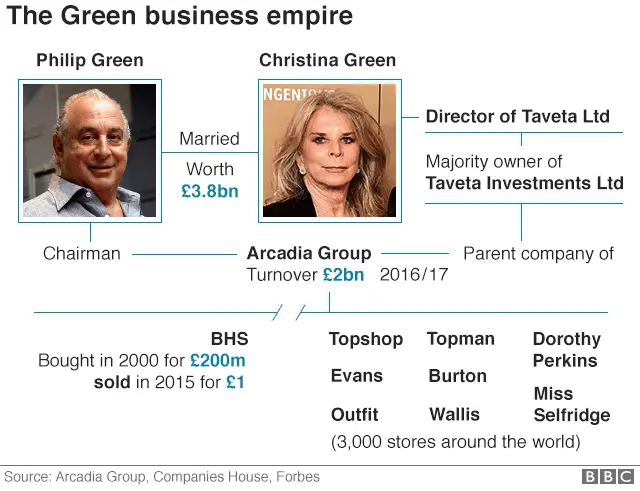Sir Philip Green drops 'gagging' legal action
 PA
PASir Philip Green has dropped legal action against the Daily Telegraph, which prevented the newspaper publishing details of allegations of sexual harassment and racist behaviour.
Last October, the Telegraph published a story saying a prominent businessman had been accused of harassment.
The Topshop boss was later named as the businessman in the House of Lords.
As a result, Sir Philip said he had been the subject of "vicious" and "untrue" personal attacks in the media.
The statement also said that Sir Philip is "not guilty of unlawful sexual or racist behaviour".
Sir Philip's representative would not say why the businessman had dropped the legal action.
When the allegations first emerged, Sir Philip acknowledged there had "been some banter", but said it had "never been offensive".
At the heart of the issue are non-disclosure agreements signed by five individuals.
In his statement, Sir Philip said that the Telegraph had helped break those agreements and threatened to make the information public.
In doing so, the newspaper had exposed the individuals to "significant risk and future legal action", the statement said.
It also said: "Due to the ongoing confidentiality obligations and injunction still in place, Arcadia and Sir Philip cannot comment on the detail of any allegations, but confirm that any grievances are treated with the utmost seriousness and are investigated thoroughly in accordance with best practice."


It was Lord Hain who, last October, identified Sir Philip as the businessmen alluded to in the Telegraph article. He did so in the House of Lords which gave him protection from legal action.
"Parliamentary privilege has always been resented by the rich and powerful when it is used as I did in this case to defend human rights and justice when under attack. It is of fundamental constitutional importance as the only absolute right to free speech cemented in our law," Lord Hain said in a statement.
Fortune
Sir Philip used to be known as the king of the High Street.
He built a fortune from a retail empire that included Topshop, BHS, Burton and Miss Selfridge.
He sold BHS in March 2015 for £1, but it went into administration a year later, leaving a £571m hole in its pension fund.
He later agreed a £363m cash settlement with the Pensions Regulator to plug the gap.
In a report into the collapse of BHS, MPs called the episode "the unacceptable face of capitalism".
He and his wife Cristina are estimated by Forbes to be worth £3.8bn.
